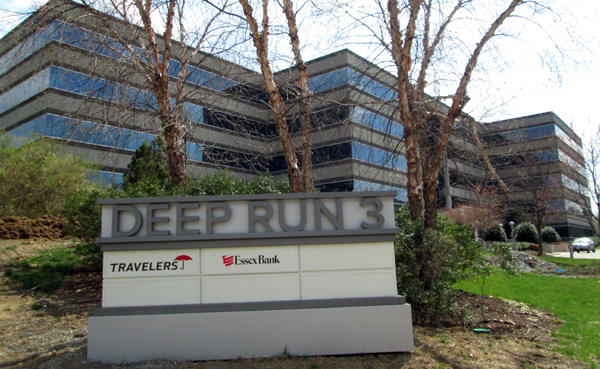
Henrico-based electronics retailer Circuit City had around 700 stores at its peak. (BizSense file photos)
The plug is finally expected to be pulled on the unwinding of Circuit City Stores Inc.
The liquidation of the long-since collapsed Henrico-based electronics retailer appears to be coming to a close, nearly 13 years to the day from when it toppled into bankruptcy on Nov. 10, 2008.
Motions were filed earlier this summer for an entry of a “final decree” and the trust’s final report, which typically indicates a bankruptcy estate’s work is done and there’s nothing more to recover for creditors.
Circuit City had 17,000 creditors with debt claims of $1.2 billion when its liquidation began.
In the end, the trust paid out $778.65 million in claims, amounting to 55 cents on the dollar owed to unsecured creditors.
“I am pleased with this distribution given the predicted 16 percent recovery at the time of confirmation,” trustee Alfred Siegel said in court filings.
Siegel said he anticipates no further distributions.
“Accordingly, in my business judgment, I have determined that it is appropriate to terminate the trust and seek a final decree and closure of these cases,” he said.
While Siegel is pleased with the result for creditors, the dozens of professionals who helped administer the case over the years also collected their share from the estate.
A total of $212.42 million was paid out over the 13 years to lawyers, accountants, financial advisors, real estate advisors and the like.
The biggest chunk of professional fees went Texas law firm Susman Godfrey, which earned $46 million representing the Circuit City trustee in ultimately lucrative class action disputes against electronics manufacturers related to price fixing.
Other top payouts to professionals included: $10.66 million to Siegel’s firm, California-based A. Siegel & Associates; $44 million to Pachulski, Stang, Ziehl & Jones, the law firm that has represented Siegel along the way; $10.69 million to law firm Brutzkus Gubner; and $12.91 million to Klee, Tuchin, Bogdanoff & Stern.
The top Richmond-based beneficiary was downtown law firm Tavenner & Beran, which earned $5.62 million over the course of the case.
Circuit City’s afterlife has lasted so long due to a number of factors, including the size and complexity of the company. At the time of its collapse it had hundreds of stores, tens of thousands of employees, various foreign affiliates, and a web of creditors.
The price fixing class action case, which helped win cash for the estate, also held up the process, as did the separate bankruptcy of Circuit City’s Canadian affiliate.
It also took a couple of years just to get the estate and creditors to agree to a formal plan of liquidation.
Across 13 years the case resulted in 14,000 docket entries, all with the same judge, U.S. Bankruptcy Judge Kevin Huennekens at the federal courthouse in Richmond.
The case has gone on long enough that former Circuit City employees had time to gather to recognize the 10th anniversary of the company’s collapse.
The drawn out case also attracted claims traders, a somewhat obscure group in the financial world who gamble on how much money will be found in a bankruptcy case by buying debt claims on spec from original creditors.
At one point a few years ago the three largest claims holders in the case were claims traders, owed a combined $450 million.
Circuit City’s bankruptcy initially had outlasted that of former Henrico-based title insurance giant LandAmerica Financial Group, which went bankrupt a few weeks after Circuit City in 2008. LandAmerica’s case was closed out in seemingly successful fashion in late 2016, only to be reopened in 2019 after it was found trustee Bruce Matson looted the trust’s $3 million wind-down fund.
Matson is now facing a potential federal prison sentence.
The last remaining piece before Siegel fully turns out the lights on the Circuit City estate is a high-level legal dispute over fees paid to the U.S. Trustee’s Office, a disagreement that could be taken up by the Supreme Court.
While the potential resolution of that dispute is not expected to result in additional money for creditors materially, the trust said it is holding the Circuit City estate open until it is decided whether the Supreme Court will hear the case. That decision is expected in November.

Henrico-based electronics retailer Circuit City had around 700 stores at its peak. (BizSense file photos)
The plug is finally expected to be pulled on the unwinding of Circuit City Stores Inc.
The liquidation of the long-since collapsed Henrico-based electronics retailer appears to be coming to a close, nearly 13 years to the day from when it toppled into bankruptcy on Nov. 10, 2008.
Motions were filed earlier this summer for an entry of a “final decree” and the trust’s final report, which typically indicates a bankruptcy estate’s work is done and there’s nothing more to recover for creditors.
Circuit City had 17,000 creditors with debt claims of $1.2 billion when its liquidation began.
In the end, the trust paid out $778.65 million in claims, amounting to 55 cents on the dollar owed to unsecured creditors.
“I am pleased with this distribution given the predicted 16 percent recovery at the time of confirmation,” trustee Alfred Siegel said in court filings.
Siegel said he anticipates no further distributions.
“Accordingly, in my business judgment, I have determined that it is appropriate to terminate the trust and seek a final decree and closure of these cases,” he said.
While Siegel is pleased with the result for creditors, the dozens of professionals who helped administer the case over the years also collected their share from the estate.
A total of $212.42 million was paid out over the 13 years to lawyers, accountants, financial advisors, real estate advisors and the like.
The biggest chunk of professional fees went Texas law firm Susman Godfrey, which earned $46 million representing the Circuit City trustee in ultimately lucrative class action disputes against electronics manufacturers related to price fixing.
Other top payouts to professionals included: $10.66 million to Siegel’s firm, California-based A. Siegel & Associates; $44 million to Pachulski, Stang, Ziehl & Jones, the law firm that has represented Siegel along the way; $10.69 million to law firm Brutzkus Gubner; and $12.91 million to Klee, Tuchin, Bogdanoff & Stern.
The top Richmond-based beneficiary was downtown law firm Tavenner & Beran, which earned $5.62 million over the course of the case.
Circuit City’s afterlife has lasted so long due to a number of factors, including the size and complexity of the company. At the time of its collapse it had hundreds of stores, tens of thousands of employees, various foreign affiliates, and a web of creditors.
The price fixing class action case, which helped win cash for the estate, also held up the process, as did the separate bankruptcy of Circuit City’s Canadian affiliate.
It also took a couple of years just to get the estate and creditors to agree to a formal plan of liquidation.
Across 13 years the case resulted in 14,000 docket entries, all with the same judge, U.S. Bankruptcy Judge Kevin Huennekens at the federal courthouse in Richmond.
The case has gone on long enough that former Circuit City employees had time to gather to recognize the 10th anniversary of the company’s collapse.
The drawn out case also attracted claims traders, a somewhat obscure group in the financial world who gamble on how much money will be found in a bankruptcy case by buying debt claims on spec from original creditors.
At one point a few years ago the three largest claims holders in the case were claims traders, owed a combined $450 million.
Circuit City’s bankruptcy initially had outlasted that of former Henrico-based title insurance giant LandAmerica Financial Group, which went bankrupt a few weeks after Circuit City in 2008. LandAmerica’s case was closed out in seemingly successful fashion in late 2016, only to be reopened in 2019 after it was found trustee Bruce Matson looted the trust’s $3 million wind-down fund.
Matson is now facing a potential federal prison sentence.
The last remaining piece before Siegel fully turns out the lights on the Circuit City estate is a high-level legal dispute over fees paid to the U.S. Trustee’s Office, a disagreement that could be taken up by the Supreme Court.
While the potential resolution of that dispute is not expected to result in additional money for creditors materially, the trust said it is holding the Circuit City estate open until it is decided whether the Supreme Court will hear the case. That decision is expected in November.





A few quick takes:
Bruce Matson could have wrapped this up a lot quicker and for much less than $212MM
I worked at CC for 2 whole weeks as a favor to the regional manager (the mother of my girlfriend at the time’s best friend) during the Holiday rush. I already had a job I loved, but they need some part-time help selling PCs during the holiday season. Two very good friends died in a horrific car accident, and I requested an afternoon off to attend the funerals. The floor manager balked, said “It’s not like they were family or anything, No you can’t have off.” I walked out that day, and never went back. I called the Regional Manager… Read more »